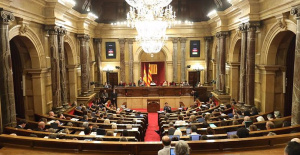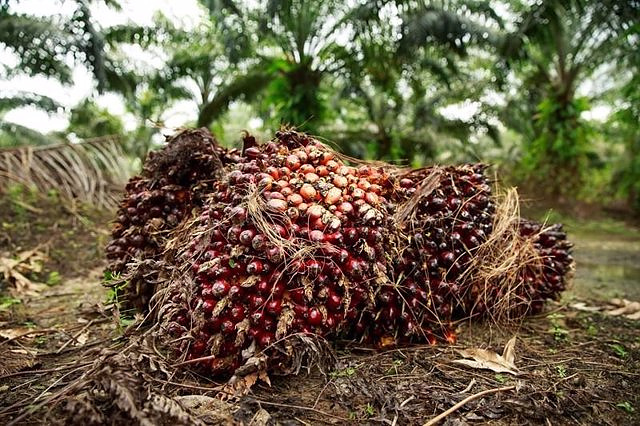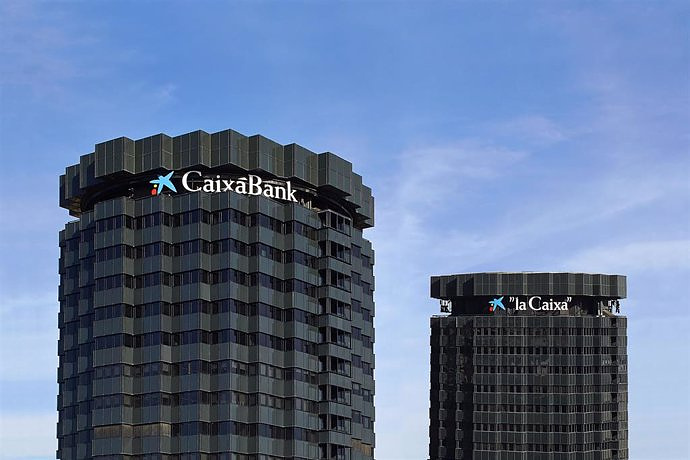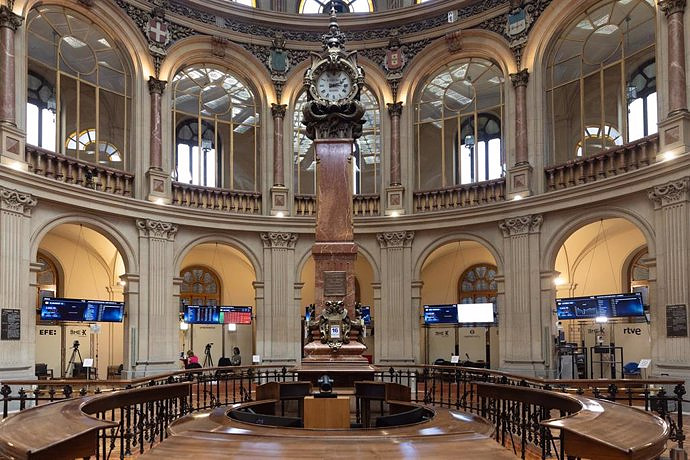BRUSELAS, 6 Dic. (EUROPA PRESS) -
The European Parliament has reached an agreement at dawn this Tuesday with the governments of the European Union (EU) on a new law on deforestation-free products that affects, among others, coffee, cocoa or palm oil, and will require companies to verify and issue a so-called "due diligence" statement that traded goods have not led to deforestation and forest degradation anywhere in the world after December 31, 2020.
According to the agreed text, although no country or merchandise will be banned as such, companies will not be able to sell their products in the EU without this type of declaration, in addition to having to verify compliance with the relevant legislation of the country of production, including the regarding human rights and respect for the affected indigenous peoples.
The new law will guarantee European consumers that the products they buy do not contribute to the destruction and degradation of forests, thus reducing the EU's contribution to global climate change and biodiversity loss.
The products covered by the new legislation are livestock, cocoa, coffee, palm oil, soybeans and timber, including products that contain, have been fed with or have been manufactured using these raw materials (such as leather , chocolate and furniture), as in the original proposal of the European Commission.
During the talks, MEPs have also added rubber, charcoal, printed paper products and a number of palm oil derivatives to this list, as well as a broader definition of forest degradation that includes the conversion of primary forests. or naturally regenerating forests in forest plantations or on other wooded land and the conversion of primary forests to planted forests.
The Commission will assess, one year after the entry into force, whether to extend the scope to other wooded land and, at the latest, two years after the entry into force, the Commission will also assess the scope to other ecosystems , including land with high carbon stocks and high biodiversity value, as well as other commodities.
Brussels will also analyze the need to oblige EU financial institutions to provide financial services to their clients only if they consider that there is an insignificant risk that these services do not cause deforestation.
The European Parliament and the Council will have to formally approve the agreement and the new law will enter into force 20 days after its publication in the Official Gazette of the EU, although some articles will apply 18 months later.
EU competent authorities will have access to relevant information provided by companies, such as geolocation coordinates, and will carry out checks and may, for example, use satellite tracking tools and DNA analysis to check where products come from.
The Commission will classify the countries, or part of them, in low, standard or high risk within a period of 18 months from the entry into force of this regulation, and the proportion of controls to the operators will be carried out according to the level of country risk: 9% for high risk, 3% for standard risk and 1% for low risk. In the case of high-risk countries, Member States will also have to control 9% of the total volumes.
Sanctions for non-compliance will be proportionate and dissuasive, and the maximum amount of the fine is set at at least 4% of the total annual EU turnover of the non-compliant operator or trader.

 Exploring Cardano: Inner Workings and Advantages of this Cryptocurrency
Exploring Cardano: Inner Workings and Advantages of this Cryptocurrency Seville.- Economy.- Innova.- STSA inaugurates its new painting and sealing hangar in San Pablo, for 18 million
Seville.- Economy.- Innova.- STSA inaugurates its new painting and sealing hangar in San Pablo, for 18 million Innova.- More than 300 volunteers join the Andalucía Compromiso Digital network in one month to facilitate access to ICT
Innova.- More than 300 volunteers join the Andalucía Compromiso Digital network in one month to facilitate access to ICT Innova.-AMP.- Ayesa acquires 51% of Sadiel, which will create new technological engineering products and expand markets
Innova.-AMP.- Ayesa acquires 51% of Sadiel, which will create new technological engineering products and expand markets The Prosecutor's Office requests 63 years in prison for Rato and a fine of more than 42 million euros
The Prosecutor's Office requests 63 years in prison for Rato and a fine of more than 42 million euros Marlaska puts more radars, surveillance on highways and motorists, and controls in the face of the increase in accidents
Marlaska puts more radars, surveillance on highways and motorists, and controls in the face of the increase in accidents Pedro Rocha, elected new president of the RFEF
Pedro Rocha, elected new president of the RFEF The PSC would win the elections with 40-47 seats and ERC is ahead of Junts, according to the CEO
The PSC would win the elections with 40-47 seats and ERC is ahead of Junts, according to the CEO How Blockchain in being used to shape the future
How Blockchain in being used to shape the future Not just BTC and ETH: Here Are Some More Interesting Coins Worth Focusing on
Not just BTC and ETH: Here Are Some More Interesting Coins Worth Focusing on The UA opens the call for the Impulso 2024 Awards for the best innovative business initiatives
The UA opens the call for the Impulso 2024 Awards for the best innovative business initiatives ALI, virtual assistant from Alicante, internationally recognized by the OECD
ALI, virtual assistant from Alicante, internationally recognized by the OECD Retrópolis brings the golden age of video games and computing to the UPV
Retrópolis brings the golden age of video games and computing to the UPV Looking for video games that value the neighborhoods of Valencia
Looking for video games that value the neighborhoods of Valencia A million people demonstrate in France against Macron's pension reform
A million people demonstrate in France against Macron's pension reform Russia launches several missiles against "critical infrastructure" in the city of Zaporizhia
Russia launches several missiles against "critical infrastructure" in the city of Zaporizhia A "procession" remembers the dead of the Calabria shipwreck as bodies continue to wash up on the shore
A "procession" remembers the dead of the Calabria shipwreck as bodies continue to wash up on the shore Prison sentences handed down for three prominent Hong Kong pro-democracy activists
Prison sentences handed down for three prominent Hong Kong pro-democracy activists ETH continues to leave trading platforms, Ethereum balance on exchanges lowest in 3 years
ETH continues to leave trading platforms, Ethereum balance on exchanges lowest in 3 years Investors invest $450 million in Consensys, Ethereum incubator now valued at $7 billion
Investors invest $450 million in Consensys, Ethereum incubator now valued at $7 billion Alchemy Integrates Ethereum L2 Product Starknet to Enhance Web3 Scalability at a Price 100x Lower Than L1 Fees
Alchemy Integrates Ethereum L2 Product Starknet to Enhance Web3 Scalability at a Price 100x Lower Than L1 Fees Mining Report: Bitcoin's Electricity Consumption Declines by 25% in Q1 2022
Mining Report: Bitcoin's Electricity Consumption Declines by 25% in Q1 2022 Oil-to-Bitcoin Mining Firm Crusoe Energy Systems Raised $505 Million
Oil-to-Bitcoin Mining Firm Crusoe Energy Systems Raised $505 Million Microbt reveals the latest Bitcoin mining rigs -- Machines produce up to 126 TH/s with custom 5nm chip design
Microbt reveals the latest Bitcoin mining rigs -- Machines produce up to 126 TH/s with custom 5nm chip design Bitcoin's Mining Difficulty Hits a Lifetime High, With More Than 90% of BTC Supply Issued
Bitcoin's Mining Difficulty Hits a Lifetime High, With More Than 90% of BTC Supply Issued The Biggest Movers are Near, EOS, and RUNE during Friday's Selloff
The Biggest Movers are Near, EOS, and RUNE during Friday's Selloff Global Markets Spooked by a Hawkish Fed and Covid, Stocks and Crypto Gain After Musk Buys Twitter
Global Markets Spooked by a Hawkish Fed and Covid, Stocks and Crypto Gain After Musk Buys Twitter Bitso to offset carbon emissions from the Trading Platform's ERC20, ETH, and BTC Transactions
Bitso to offset carbon emissions from the Trading Platform's ERC20, ETH, and BTC Transactions Draftkings Announces 2022 College Hoops NFT Selection for March Madness
Draftkings Announces 2022 College Hoops NFT Selection for March Madness























